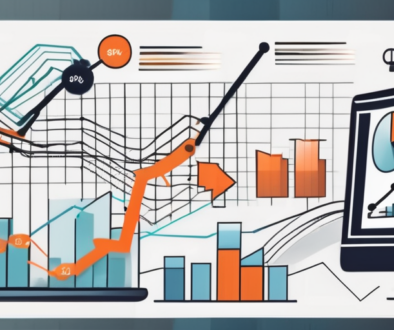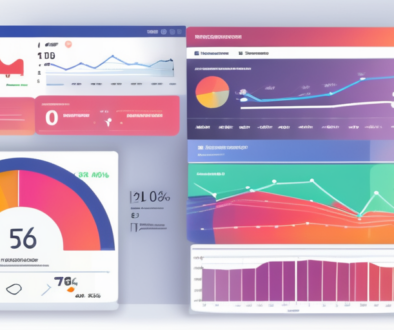How PPC Works: Strategies for Effective Advertising
PPC, or Pay-Per-Click, is an essential aspect of digital marketing that allows advertisers to reach their target audience through strategic online advertising campaigns. It is a powerful tool that can drive immediate and highly targeted traffic to a website, making it a popular choice for businesses looking to boost their online presence and generate leads and conversions.
Understanding the Basics of PPC
Defining PPC
Before diving into the details, let’s define what PPC exactly means. PPC stands for Pay-Per-Click, an online advertising model where advertisers pay a fee each time their ad is clicked. This form of advertising is commonly used in search engines like Google and social media platforms such as Facebook. By bidding on keywords relevant to their target audience, advertisers can have their ads displayed to users searching for specific terms or browsing related content. The effectiveness of a PPC campaign is often measured by the return on investment (ROI) generated from the clicks received.
One key aspect of PPC is ad targeting, where advertisers can specify the demographics, interests, and online behaviors of their desired audience. This level of targeting allows for precise reach and maximizes the chances of converting clicks into leads or sales. Additionally, PPC platforms provide detailed analytics and reporting tools to track the performance of ads, enabling advertisers to make data-driven decisions to optimize their campaigns.
The Importance of PPC in Digital Marketing
PPC plays a crucial role in the world of digital marketing. It allows businesses to get their ads displayed in search engine results pages (SERPs) or on relevant websites within a short period. With the rise of digitalization, having an effective PPC strategy has become essential to stay competitive in today’s digital landscape. In a highly competitive online market, PPC offers a way to quickly increase visibility, drive targeted traffic, and achieve marketing objectives.
Furthermore, PPC complements other digital marketing channels such as search engine optimization (SEO) and social media marketing. While SEO focuses on improving organic search rankings over time, PPC provides instant visibility at the top of search results. By integrating PPC with SEO efforts, businesses can create a comprehensive online presence that covers both immediate and long-term marketing goals. This synergy between different digital marketing strategies enhances brand visibility, increases website traffic, and ultimately boosts conversions.
Different Types of PPC
Search Advertising
Search advertising is one of the most common forms of PPC. It involves bidding on keywords relevant to your business and creating text-based ads that appear at the top or bottom of search engine results. When a user searches for a specific keyword, your ad may appear based on the relevance and bid amount.
Search advertising is a highly effective way to target users who are actively searching for products or services related to your business. By strategically selecting keywords and optimizing your ad copy, you can increase the chances of your ad being clicked on by potential customers. Additionally, search advertising provides valuable data and insights that can help you refine your PPC strategy over time.
Display Advertising
Display advertising involves placing visually appealing banner ads on websites that are part of a network. These ads can include images, videos, and interactive elements. Display advertising allows you to reach a wider audience across various websites, increasing brand visibility and potential conversions.
Display advertising is a great way to create brand awareness and engage with users who may not be actively searching for your products or services. By designing eye-catching creatives and targeting specific websites or audiences, you can effectively showcase your brand to a diverse group of potential customers. Display advertising also offers retargeting options, allowing you to re-engage users who have previously visited your website but did not convert.
Social Media Advertising
Social media advertising has gained immense popularity in recent years. It involves running targeted ads on social media platforms like Facebook, Instagram, Twitter, and LinkedIn. Social media advertising allows businesses to leverage the extensive user data provided by these platforms to target specific demographics, interests, and behaviors.
Social media advertising offers a unique opportunity to connect with users in a more personalized and interactive way. By creating engaging ad content and utilizing advanced targeting options, you can tailor your ads to resonate with specific audience segments. Social media platforms also provide robust analytics tools that allow you to track the performance of your ads in real-time and make data-driven optimizations to improve your ROI.
How PPC Works
Keyword Selection
One of the critical aspects of PPC is selecting the right keywords. Thorough keyword research is crucial to identify the terms and phrases your target audience is using when searching for products or services similar to yours. By selecting relevant and high-performing keywords, you can increase the effectiveness of your PPC campaigns.
Ad Creation
The creation of compelling and engaging ads is vital for PPC success. Craft attention-grabbing headlines, incorporate relevant keywords, and have a clear call-to-action. A well-designed and persuasive ad will entice users to click and explore further, increasing the chances of conversion.
Landing Page Design
Once a user clicks on your ad, they should be directed to a landing page that is relevant, user-friendly, and optimized for conversions. Landing page design plays a crucial role in maximizing the effectiveness of your PPC campaigns. A well-designed landing page can significantly increase the chances of converting a visitor into a customer.
Ad Extensions
Ad extensions are additional pieces of information that can be added to your PPC ads to provide more value to potential customers. These extensions can include additional links, contact information, or specific features of your products or services. By utilizing ad extensions effectively, you can make your ads more informative and appealing, increasing the likelihood of user engagement.
Furthermore, ad extensions can also improve your ad’s visibility on search engine results pages, making them stand out among competitors and attracting more clicks. It is essential to test different ad extensions to see which ones resonate best with your target audience and drive the most conversions.
Benefits of PPC Advertising
Immediate Traffic
PPC provides businesses with an opportunity to generate immediate traffic to their website. Unlike SEO efforts that take time to show results, PPC allows you to start getting clicks and visitors as soon as your campaigns go live. This makes it an excellent choice for businesses looking for quick and measurable results.
Targeted Advertising
One of the significant advantages of PPC advertising is the ability to target specific audiences. With advanced targeting options, businesses can choose who sees their ads based on various demographic, geographic, and behavioral factors. This level of targeting ensures that your ads are shown to the right people, increasing the chances of conversions.
Measurable Results
PPC campaigns provide detailed data and analytics, allowing businesses to track and measure the performance of their ads. From the number of clicks and impressions to the conversion rate and cost per click, you can obtain valuable insights into the effectiveness of your campaigns. These insights enable you to make data-driven decisions and optimize your campaigns for better results.
But let’s dive deeper into the world of PPC advertising and explore some additional benefits that make it an indispensable tool for businesses:
1. Enhanced Brand Visibility: PPC advertising not only drives immediate traffic but also enhances brand visibility. By appearing at the top of search engine results pages (SERPs) or on relevant websites, your brand gains exposure to a wider audience. This increased visibility helps in building brand recognition and trust among potential customers.
2. Flexibility and Control: With PPC, businesses have complete control over their advertising campaigns. You can set your budget, choose when and where your ads appear, and even pause or adjust your campaigns as needed. This flexibility allows you to adapt your strategies based on market trends, seasonal demands, or any other factors that may impact your business.
3. Competitive Advantage: In today’s competitive digital landscape, PPC advertising gives businesses a competitive edge. By targeting specific keywords or niches, you can outrank your competitors and capture the attention of potential customers. This advantage is particularly beneficial for new businesses or those operating in highly competitive industries.
In conclusion, PPC is a fundamental component of digital marketing that cannot be overlooked. Its ability to drive immediate and targeted traffic, along with its diverse advertising options, makes it a valuable tool for businesses of all sizes. By understanding the basics, exploring different types, and implementing effective strategies, businesses can utilize PPC to achieve their marketing goals and enhance their online visibility.



